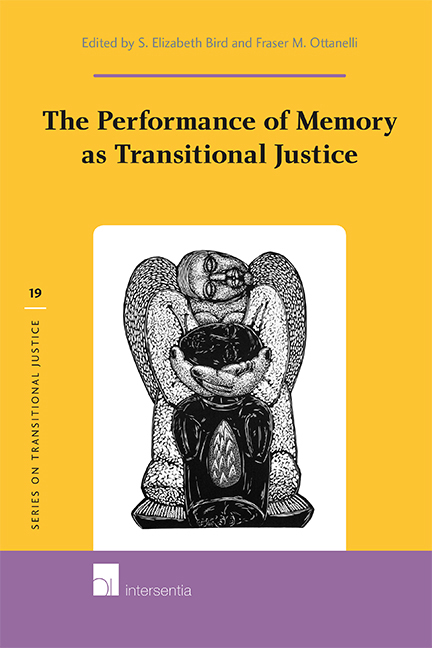Chapter 2 - Legalising Collective Remembrance After Mass Atrocities
Published online by Cambridge University Press: 16 December 2020
Summary
In societies recovering after state-sanctioned mass violence, questions of how such unspeakable brutality could occur and vows of ‘never again’ abound. As this volume highlights, many believe that developing an enduring and shared memory of the events is essential to healing the wounds of a rattled national conscience and to preventing the recurrence of mass atrocities. Scholars such as Mark Oseil have extolled the cathartic and formative role that justice mechanisms play in establishing collective memory. Their underlying assumption is that trials facilitate the formation and articulation of a shared narrative that empowers victims.
Yet that chronology is often reversed. Given the political instability and judicial insecurity that typically precipitates such heinous crimes, holding trials is frequently not feasible in the immediate aftermath of mass human rights violations. In the vacuum created by legal inaction, those most intimately affected by the mass violence often come together and through discussion and ritual merge their fragmented recollections into a holistic narrative. Through these communal conversations, which can last for decades, memories are reformed and reshaped so they no longer belong to the individual, but the collective.
Over the past two decades the rise of legal responses to mass atrocities, such as crimes against humanity, war crimes, and genocide, means that injustices for which there formerly were no consequences, are, for the first time, facing the scrutiny of courts and other legal institutions. In order to obtain accountability for human rights abuses, victims must recount their stories in written statements or testify at legal proceedings. Given the law's emphasis on individualism and autonomy, human rights attorneys must challenge and even dismantle the collective memory of their clients to prepare their testimony, potentially undoing the healing that has been accomplished through dialogue and community identification and re-traumatising these victims of violence. This tension between justice and collective memory thus represents a considerable dilemma for transitional justice.
This chapter seeks to foster a conversation amongst scholars and human rights attorneys about the inclusion of collective memory in judicial proceedings seeking to address mass violence. Section 1 defines collective memory and explains its therapeutic value for victims of mass violence. Section 2 discusses the relationship between collective memory and justice, and outlines the prevailing argument that legal proceedings facilitate the creation of collective memory.
- Type
- Chapter
- Information
- The Performance of Memory as Transitional Justice , pp. 23 - 42Publisher: IntersentiaPrint publication year: 2014



